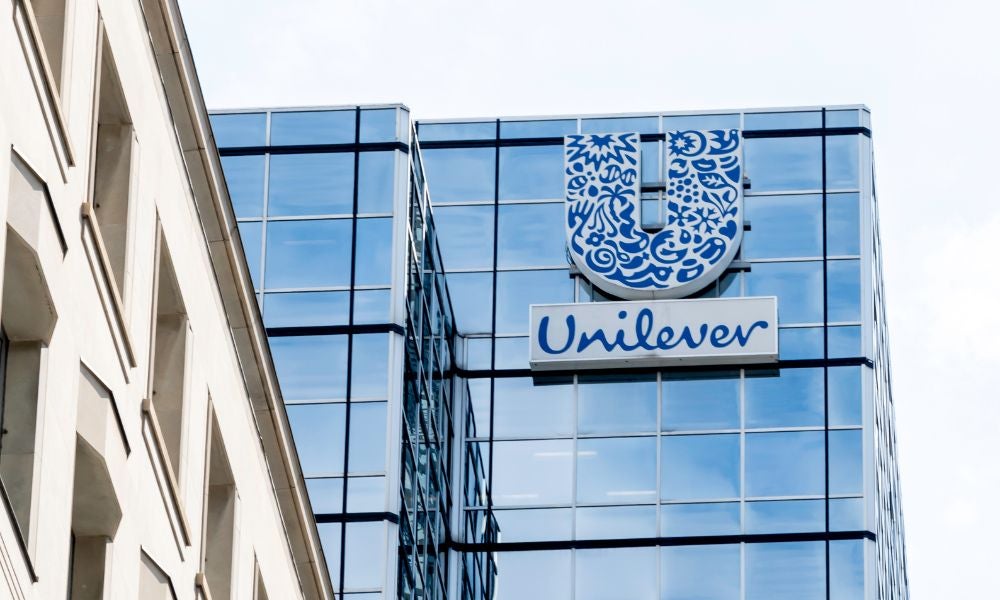Four ways to navigate the noise around corporate social impact
This corporate social responsibility (CSR) framework can help leaders address various CSR challenges, writes UNSW Business School's Jacqueline Mees-Buss
Capitalism, Porter and Kramer wrote in 2011, is under siege. Greater attention must be paid to the impact of commercial activity on the natural and social environment, or corporations will lose their legitimacy in society. Since the start of the 21st century, corporations have been expected to commit to the UN Global Compact, to sustainability, social justice, net zero carbon, the circular economy, CSR, CSV, SDGs, ESG impact, or simply to a better future for all. But amid all these concepts, acronyms and definitions, many are confused. What exactly are corporations responsible for? What should be on the strategic agenda and how can the issues be addressed?
The academic literature does not offer much reprieve. As the editors of the Oxford Handbook for Social Responsibility noted: "For a subject that has been studied for so long, it is unusual to discover that researchers still do not share a common definition or set of principles, that they still argue about what it means to be socially responsible, or even whether firms should have social responsibilities in the first place."
But business leaders pay a high price if they get it wrong. Despite good intentions and an ESG rating that places the Royal Dutch Shell group amongst the best in its industry (S&P Global 2020), Shell’s top management team was prosecuted by ClientEarth for mismanaging its environmental responsibilities. This was not long after the Dutch Department for Environmental Affairs also accused the company of hazardous negligence and failing its human rights obligations.
An in-depth case study of how a company like Unilever – often presented as the corporate social impact movement's posterchild – examined how it collectively made sense of its broader social responsibilities over time. It revealed that, although Unilever may have always presented itself as united around a single definition of what it means to be a socially responsible corporation, there was an ongoing debate among its managers on what this meant. What transpired from the interviews was that there were two faultlines that divided managers’ views when they discussed their interpretation of the societal responsibilities of the corporation.

Where are the faultlines in CSR?
The first faultline centred around a fierce ideological controversy: should social and environmental responsibility be interpreted and implemented as a win-win concept that entails doing good while simultaneously improving the profitability and competitiveness of the firm (also known as the instrumental approach)? Or should it be interpreted as a more normative concept that redefines the moral duties and responsibilities of the corporation as ‘doing what is necessary for society’ even when benefit to the bottom line cannot always be guaranteed?
The other faultline that was dividing managers’ interpretation of CSR dealt with the question of which issues belonged on the CSR agenda and which did not. Should CSR activities focus primarily on eliminating all negative social and environmental impact from the company’s own value chain, in other words, on ‘righting the wrongs of the past’, or should they also include other initiatives that have nothing to do with righting wrongs, but that do contribute to a better society?
Most of the concepts defining the societal responsibilities of corporations, such as ‘creating shared value’, or ‘corporate responsiveness’, fall on either side of these faultlines and narrow the type of issues to be considered. So how can leaders navigate the noise of the plethora of sometimes contradicting concepts, definitions and opinions and do the right thing? Instead of adjudicating between the different interpretations of CSR, I propose a framework that takes the two faultlines that have been dividing decision-makers and combines them.
The result is a framework of four types of issues that, in fact, all deserve to be considered for the corporate CSR agenda – but that cannot be dealt with in the same way. They each demand a different strategic response due to the differing nature of the issues they represent. Recognising the four types of issues and the four types of strategies necessary to address them not only helps corporate decision-makers to get greater clarity on the types of issues to consider for the agenda but, more importantly, to tailor their strategic response.

The framework: Four types of issues, four types of strategies
The framework below combines the different interpretations of CSR and shows there are four types of issues. They each differ in nature and – as I will discuss below – all need a different strategic approach:
| Righting the wrongs of the past: Addressing issues where the firm currently has a negative impact on society. | Contributing to a better society: Addressing issues where the firm has the resources and capabilities to make a positive contribution to societal issues. | |
| INSTRUMENTAL approach: CSR = win-win solutions | 1. Low-hanging fruit Righting wrongs through win-win solutions. | 3. Societal opportunities Profitable ventures that successfully address societal issues. |
| NORMATIVE approach: CSR = doing the right thing | 2. Nasty trade-offs Righting wrongs even though there are no (obvious) win-win solutions. | 4. Matters of conscience Addressing societal issues without a direct link to profit. |
Righting wrongs through profitable solutions, represents the proverbial ‘low hanging fruit’. It starts with the identification of all the negative social and environmental impact the company is having along its value chain. The challenge is then, to find innovative solutions that solve the problem without jeopardising the profitability of the firm. Firms can do this individually or in collaboration with a network of innovators. Examples include electric cars, vegetable-based meat, or cleaner yet more efficient factories.
‘Nasty tradeoffs’ represent the negative impact that is not easily addressed profitably, such as the environmental impact of oil and gas companies, airline and mining companies or the dependence on cheap labour of fast fashion companies. They present a company with a difficult dilemma. Doing the right thing is often costly or impossible; can put the company’s future at risk; or can only be done if all competitors would follow suit (e.g. pay higher wages in the supply chain). The best way to move forward is often to collaborate with industry partners, NGOs, government departments, and legislators to jointly seek new ways to regulate the industry and minimise potential environmental damage, while simultaneously collaborating with a network of innovators on technological breakthroughs.
‘Societal opportunities’ are the areas where the company can gain profit and strengthen its reputation by making a positive contribution to society, not because they are part of the problem, but because they have the unique assets or competencies to do so. To do well in this quadrant, firms need to seek strategic advantage through innovative products and services that address societal challenges such as the UN Sustainable Development Goals. Examples include products such as tiny homes, water purifiers, solar panels, and banks providing microloans to the poor to alleviate poverty.
Read more: How do shareholder votes enhance a company's CSR performance?
‘Matters of conscience’, are those areas where the firm – given its competencies and/or assets – can make a significant contribution to societal challenges but is unlikely to ever make a profit. For example, when Merck developed a drug to cure river blindness, they knew it would never pay back, but they also knew that if they didn’t, people would continue to suffer from a terrible disease. Such decisions need an authentic sense of social responsibility, a good dose of moral courage, and discernment to know when is the right time to let societal needs prevail over profit.
Setting the CSR agenda straight
Setting the corporate social impact agenda with the help of this framework cuts through the noise of disparate interpretations and recommendations about what should be on it and gives structure to the strategic debate on how the different types of issues should be addressed.
The framework also brings to the fore that although all industries face issues and opportunities in all quadrants, they all face a different mix of challenges. Companies that compete in essential industries such as transportation or oil and gas, predominantly face nasty tradeoffs that threaten their reputation or even their existence. Companies like Unilever or Patagonia, which mostly face low-hanging fruit and societal opportunities, have gained our highest praise for their sustainability efforts, but while they are worthy of our praise, it is important to remember that our future depends on companies that are deeply stuck in nasty trade-offs.
Subscribe to BusinessThink for the latest research, analysis and insights from UNSW Business School
In other words, a broader acknowledgement of the four different types of issues and the different types of strategies they demand will hopefully help leaders cut through the noise and lead to more comprehensive agendas, more tailored strategies, and greater support for those industries facing the biggest challenges of all.
Dr Jacqueline Mees-Buss is a lecturer in the School of Management and Governance in UNSW Business School. Prior to joining academia, she worked as a senior executive for large multinational corporations such as Unilever in the Netherlands, South Korea, the Philippines, Germany and Australia, and as an independent consultant for companies such as CBA, Westpac, Lendlease, and Colgate Palmolive. For more information please contact Dr Mees-Buss directly.
